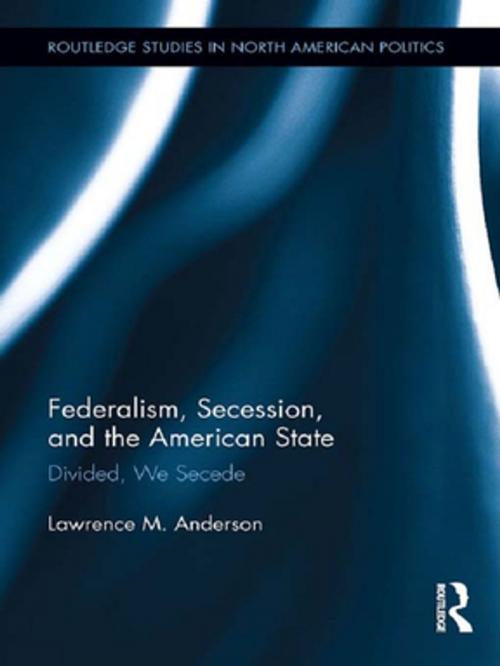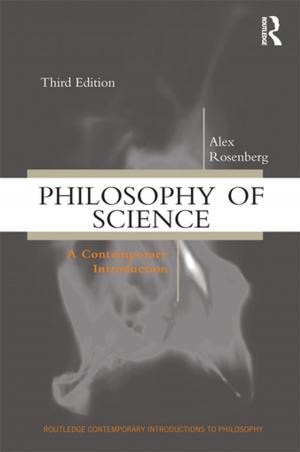Federalism, Secession, and the American State
Divided, We Secede
Nonfiction, Social & Cultural Studies, Political Science, Government, Local Government, Politics, History & Theory| Author: | Lawrence M. Anderson | ISBN: | 9781136215230 |
| Publisher: | Taylor and Francis | Publication: | May 20, 2013 |
| Imprint: | Routledge | Language: | English |
| Author: | Lawrence M. Anderson |
| ISBN: | 9781136215230 |
| Publisher: | Taylor and Francis |
| Publication: | May 20, 2013 |
| Imprint: | Routledge |
| Language: | English |
One important tradition in political science conceives of the Civil War in the United States serving as the functional equivalent of the English and French Revolutions, bringing with it the victory of liberal democratic industrialism over aristocratic agriculturalism. From this perspective, the Civil War is notable for its impact on the American state. Surprisingly however, little attention has been paid to the distinguishing features of this historic rupture in American politics.
Through primary source research and the re-analysis of the rich historical literature about the antebellum era and the causes of the Civil War, Lawrence A. Anderson explores the relationship between federalism and the movement for secession in the United States during the pre-civil war era. Focusing primarily on South Carolina, Anderson carefully revisits theory on institutional analysis of political development to expose what caused secession in the United States.
One important tradition in political science conceives of the Civil War in the United States serving as the functional equivalent of the English and French Revolutions, bringing with it the victory of liberal democratic industrialism over aristocratic agriculturalism. From this perspective, the Civil War is notable for its impact on the American state. Surprisingly however, little attention has been paid to the distinguishing features of this historic rupture in American politics.
Through primary source research and the re-analysis of the rich historical literature about the antebellum era and the causes of the Civil War, Lawrence A. Anderson explores the relationship between federalism and the movement for secession in the United States during the pre-civil war era. Focusing primarily on South Carolina, Anderson carefully revisits theory on institutional analysis of political development to expose what caused secession in the United States.















